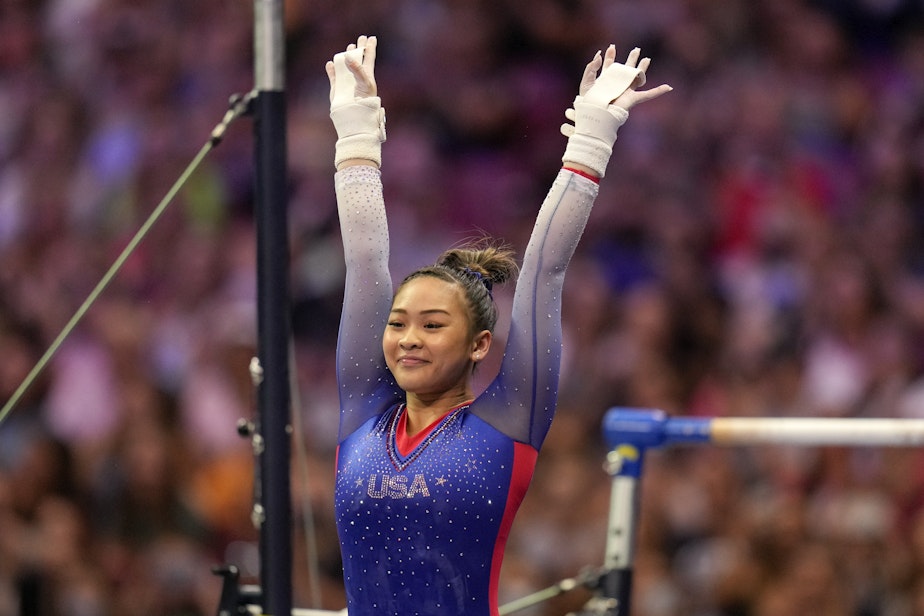'She has worked so hard for this.' Seattle Hmong community on Suni Lee's Olympic gold

Puget Sound's Hmong community is celebrating Olympic gymnast Sunisa Lee's historic gold medal for Team USA at the Tokyo Olympics.
Lee, the daughter of immigrants, is not only the first Hmong American gold medalist, she's also the first Hmong American to compete on Team USA.
The Olympic gold isn't Lee's first time medaling, she also helped the USA women's gymnastics team clinch a silver medal after teammate Simone Biles withdrew from the Olympics due to mental health concerns.
“She has worked so hard for this,” said Friendly Vang-Johnson, founder and manager of local Friendly Hmong Farms. “She represents a lot of dreams that Hmong Americans have about finally being part of the American community, being accepted as Americans.”
Xee Yang-Schell, who does sales and marketing for Yang Farm, said Lee’s win is symbolic.
“It symbolizes how far we have come in such a short period of time,” Yang-Schell said. “And it symbolizes us embracing a new culture while holding on to our old, I think it's just really a wonderful achievement for her.”
Sponsored
The Hmong people largely immigrated to the United States in the 1970s as refugees during the Vietnam War, mainly from Laos. In the Seattle area, they established themselves as horticulturalists and farmers, and sell floral arrangements that have become major tourist attractions at Pike Place Market.
The Hmong population remains relatively small in the U.S., composing less than 1% of the total population— a large portion of which reside in Minnesota, where Lee is from.
Vang-Johnson used to live in Minnesota, and would play volleyball against Lee’s mother, before relocating to Puget Sound. She said she’s part of a tight-knit community, and that many Hmong elders know each other, as well as those who are part of second and third generations of the Hmong community.
Lee is also a role model for Vang-Johnson’s daughters, two of whom are gymnasts themselves. She said that many families in the Hmong community came to the United States as refugees, and want to keep their children close to home.
“There’s a lot of trauma in the world,” Vang-Johnson said. “So we want to make sure that our kids are in safe places … and so I think there was more of a tendency to not let our girls go out, and not participate in athletics.”
Sponsored
But as more Hmong parents see athletes like Lee compete, the community is shifting toward being more supportive of female athletes, and expanding its ideas about what it means to be a successful Hmong woman, Vang-Johnson said.
Lee, the youngest member of the U.S. gymnastics team, is the first ever Hmong American Olympian.
“I am so proud of this young girl for working so hard, and I'm just really pleased that she has such a wonderful, supportive family and community around her lifting her up, and for what they have been able to accomplish,” Yang-Schell said. “They have lifted up our hope among the community in the United States and all over the world.”




